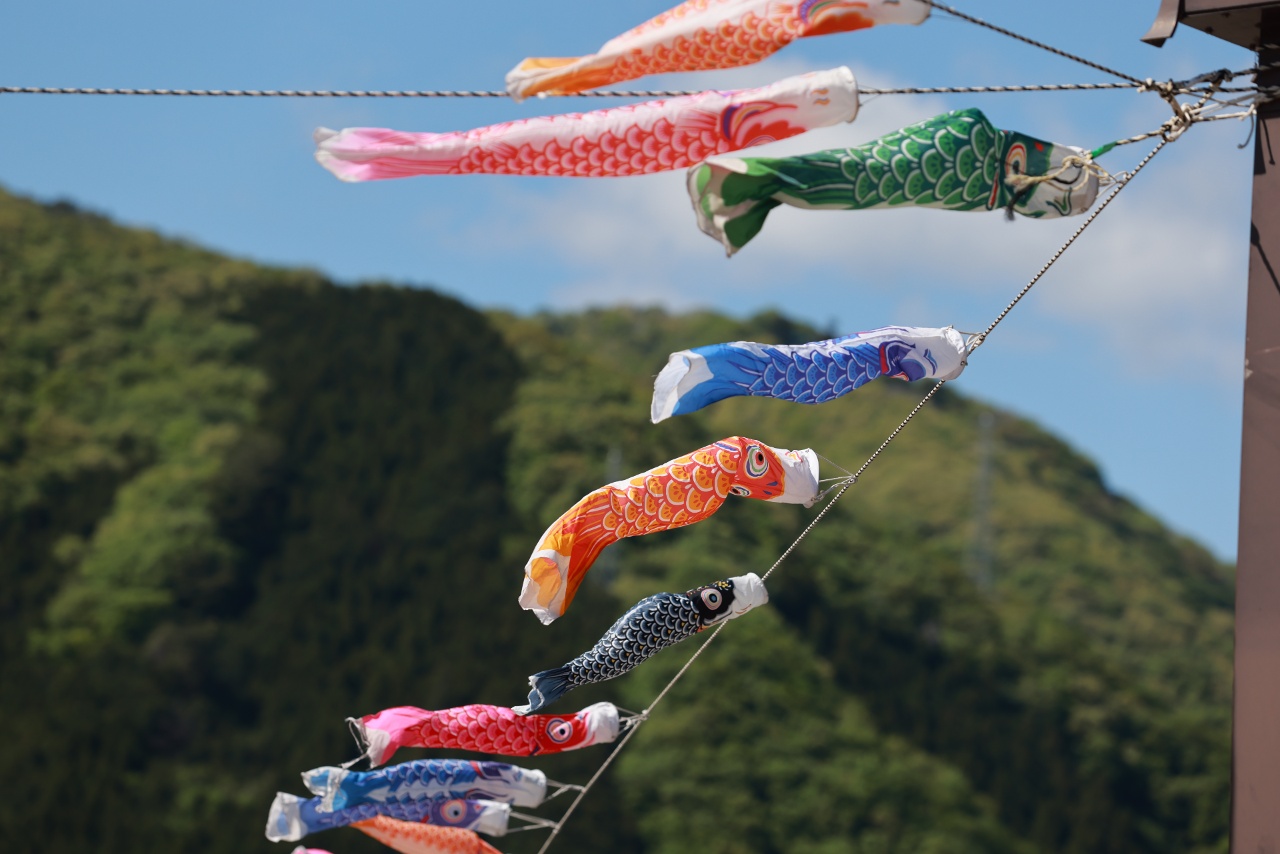Individuals and businesses in Japan rely on Google everyday for online searches, whether it’s for information gathering, product or service discovery, entertainment or other reasons.
We take a brief look at some of the major Google search trends from Japan and consider how they are impacted by cultural, linguistic, and regional influences.
Factors Influencing Google Search Trends in Japan

Google search trends can vary significantly between countries due to cultural, linguistic, and regional differences. Below are some important factors that can contribute to the variation in Google search in Japan and other markets.
1. Language
The primary language spoken in a country can impact search trends. People are always more likely to search for content and topics in their native language. With native Japanese speakers making up around 99% of the population, searches will be made primarily in the Japanese language.
Another consideration is that Japanese consists of different writing systems. Both online searches and content typically includes a mix of hiragana, katakana, and kanji characters and searchers may choose one system over another depending on factors such as the topic or their age.
HB Pro Tip: Slang, colloquial terms and generation-specific vocabulary play an important role in the way people make searches in Japan
2. Culture and Interests
Cultural differences influence the topics and subjects people search for. Each country has unique cultural interests, traditions, and current events that shape search trends.
For instance, Japanese holidays, festivals, sports events, or popular entertainment figures will dominate search trends in the country.
3. Geographic and Seasonal Factors
Geography and climate can also influence search trends. For example, Japan’s distinct seasons and weather will heavily impact the kind of products, fashion and services people are looking for at different times of the year.
4. Socioeconomic Factors
Economic and social factors can impact search trends in different ways. These include:
- Income and wealth
- Education
- Occupation
- Attitude to government policies
- Digital competency
- Smartphone and internet penetration
- Urban population vs rural population
- Gender and equality
- Ethnic diversity
5. Local News and Events
Local news stories, political events, or natural disasters can significantly impact search trends within a specific country.
People are more likely to search for information related to these events, and certain themes or topics will receive more engagement than others due to an individual’s personal interest or politics—leading to localized search trends.
6. Advertising and Brand Marketing
Advertising campaigns and marketing efforts can also shape search trends in Japan. Many brands will produce online content, like blog posts, or ad campaigns, such as Google PPC ads, that will shape the kind of results people see on search results pages as well as the kind of searches individuals make.
Trending Topics On Google Japan

While search trends change all the time, several general trends emerge when looking at activity on Google search in Japan. We can discover these by looking at data provided by the Google Trends tool as well as using keyword research and online performance tools like SEMRush and Mongools.
People of Interest
Searches for famous actors, singers, idols, and celebrities are incredibly popular in Japa. This includes bios and career profiles as well as news, gossip, upcoming events, and interviews.
Example searches: NewJeans (Korean girl group), Akiko Wada (singer), Haruka Ayase (actress), Watarui Nachi (actor), Shinzo Abe (politician), Ueshima Ryuhei (comedian), Hiroyuki Watanabe (actor), Maya Kobayashi (journalist)
News and Sports
As well as key news stories and topics such as Covid-19 news or the war in Ukraine, traditional Japanese sports such as sumo wrestling and martial arts, as well as popular international sports generate significant search interest among sports enthusiasts in the country.
For example, baseball is Japan’s most loved sport and holds a significant cultural and historical importance in the country. It has a massive fan base, and professional baseball leagues, such as the Central League and the Pacific League, draw large crowds and receive extensive media coverage.
Example searches: Threads, Amazon Prime Day, Sumudigawa Fireworks Festival, Twitter X, Typhoon Information, Ukraine, Baseball, Nasa Hataoka, Fifa Women’s World Cup, Manchester City, Shohei Ohtani, Japan National Rugby Union Team
Anime and Manga

Japan is known for its vibrant anime and manga culture, and these topics attract a considerable amount of search interest. People search for updates on popular anime series, manga releases, character information, and related merchandise.
Example searches: The Dreaming Boy is a Realist, Rent-A-Girlfriend, Jujitsu Kaisen, Pokemon, Chainsaw Man, Spy X Family, Mobile Suit Gundam, Studio Ghibli
Pop Culture
Japanese pop culture, including music, movies, television dramas, and variety shows, draws considerable search interest. People search for information about popular bands, actors, upcoming releases, and entertainment events.
Example searches: The Boy and the Heron (Film), Trillion Game (TV drama), Akutagawa Prize, Kingdom, (movie)Sparrow door lock (movie), Shin Ultraman (movie), one piece film red (movie), Roppongi class (drama)
Fashion and Beauty
Japanese users frequently search for the latest fashion trends, beauty tips, makeup tutorials, and clothing brands. Local interest on Google search in Japan is not limited to domestic fashion but also extends to fashion trends in Asia, such as Korea and China.
Also, topics related to health, fitness, dieting, and wellness attract considerable attention. Millions of users search for information about exercise routines, healthy recipes, alternative medicine, and natural remedies.
Example searches: Hair removal, Eyelash Serum, Rakuten Fashion Week, Sara Takanashi Makeup, Pure Desire Makeup, Plain Water Makeup, Makeup that was popular in the late Edo period
HB Pro Tip: Search trends can change over time and are influenced by current events, new trends, and evolving interests. Monitoring popular content on social media through social listening tools like Twitter can help you anticipate what will be popular search topics in the future.
Top Searches On Google Japan in 2022
*Tap or Hover on the graph below to see details.
Source: Statista
How to Optimize Your Content for Google In Japan

Optimizing SEO content for different countries, such as Japan, requires a strategic approach that takes into account the specific language, culture, and search behaviors of the target audience.
Below are some tips that might help you create content that matches the interests and needs of Japanese searchers.
- Language and Localization: Ensure that your content is in Japanese-first. Adapt your website, keywords, meta tags, and content to resonate with Japanese users and avoid simple machine translations that won’t offer the necessary level of accuracy, cultural appropriateness, and impact that content created by Japanese native speakers will have.
- Keyword Research: Conduct thorough keyword research to identify popular search terms and phrases that Japanese users are likely to use. Use keywords that are suitable for your Japanese market rather than just translating your batch of English keyworks.
- Localized Link Building: Build relationships with Japanese websites and influencers to earn quality backlinks. Partnerships with relevant local websites, blogs, and even social media accounts can help you to promote your content and increase your visibility within the Japanese online community.
- User Experience: Optimize your website’s user experience for Japanese visitors. This includes using a localized domain (.jp), optimizing for mobile devices, ensuring fast page loading speed, implementing proper site navigation in Japanese, and providing local contact information and customer support options.
- Monitor and Analyze: Regularly monitor your website’s local performance, search rankings, and traffic to improve the way your content performs on Google search in Japan. Use analytics tools, such as Google Analytics and Search Console, to gain insights into user behavior, search queries, and conversions within your target market.
Online search trends can vary significantly from one country to another. The search behavior of users on Google search in Japan is influenced by various factors such as culture, language, local events, interests, and regional preferences.
It’s important for both search engines and marketers to understand these variations in search trends to provide relevant and localized content and services to users in Japan.